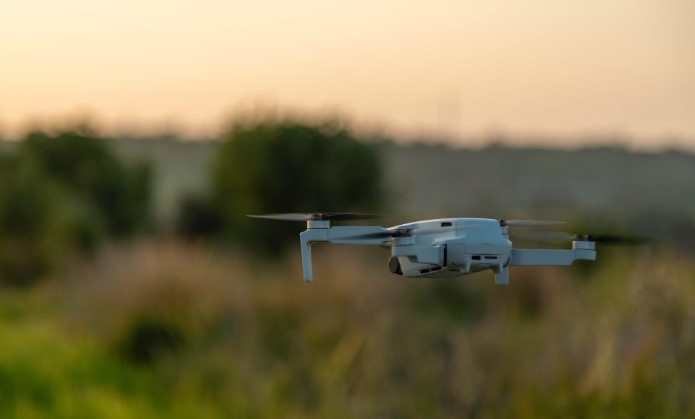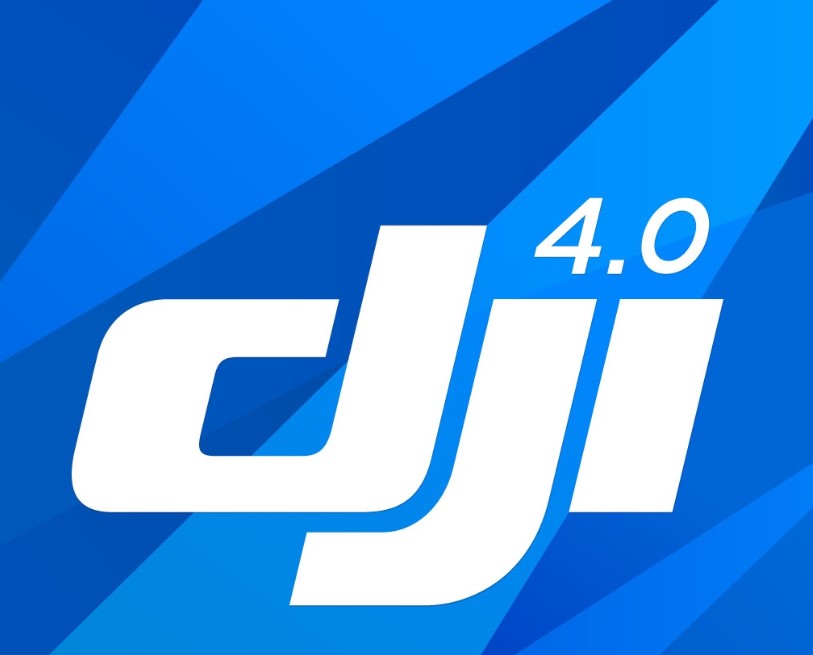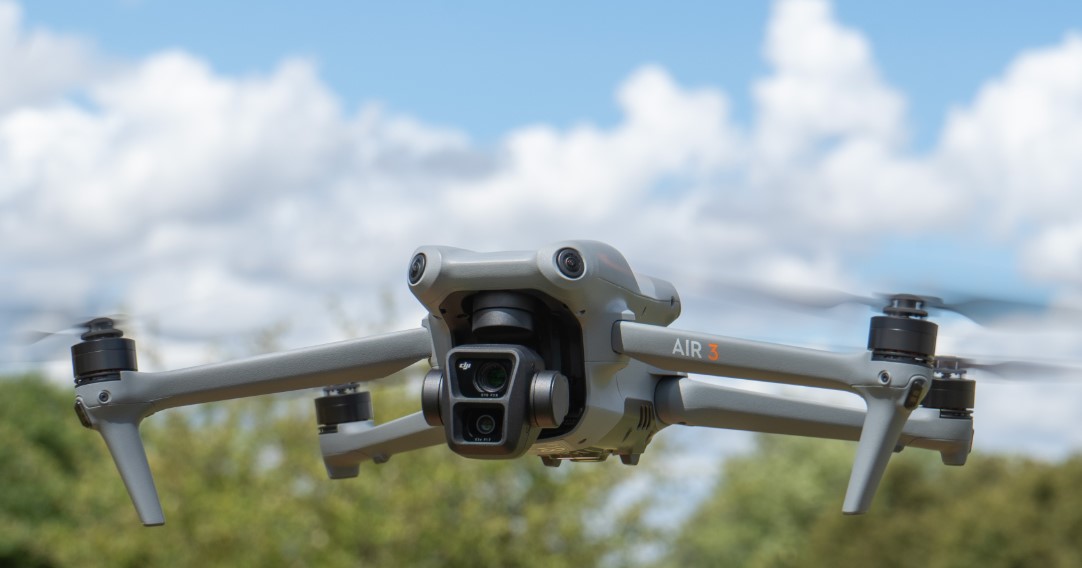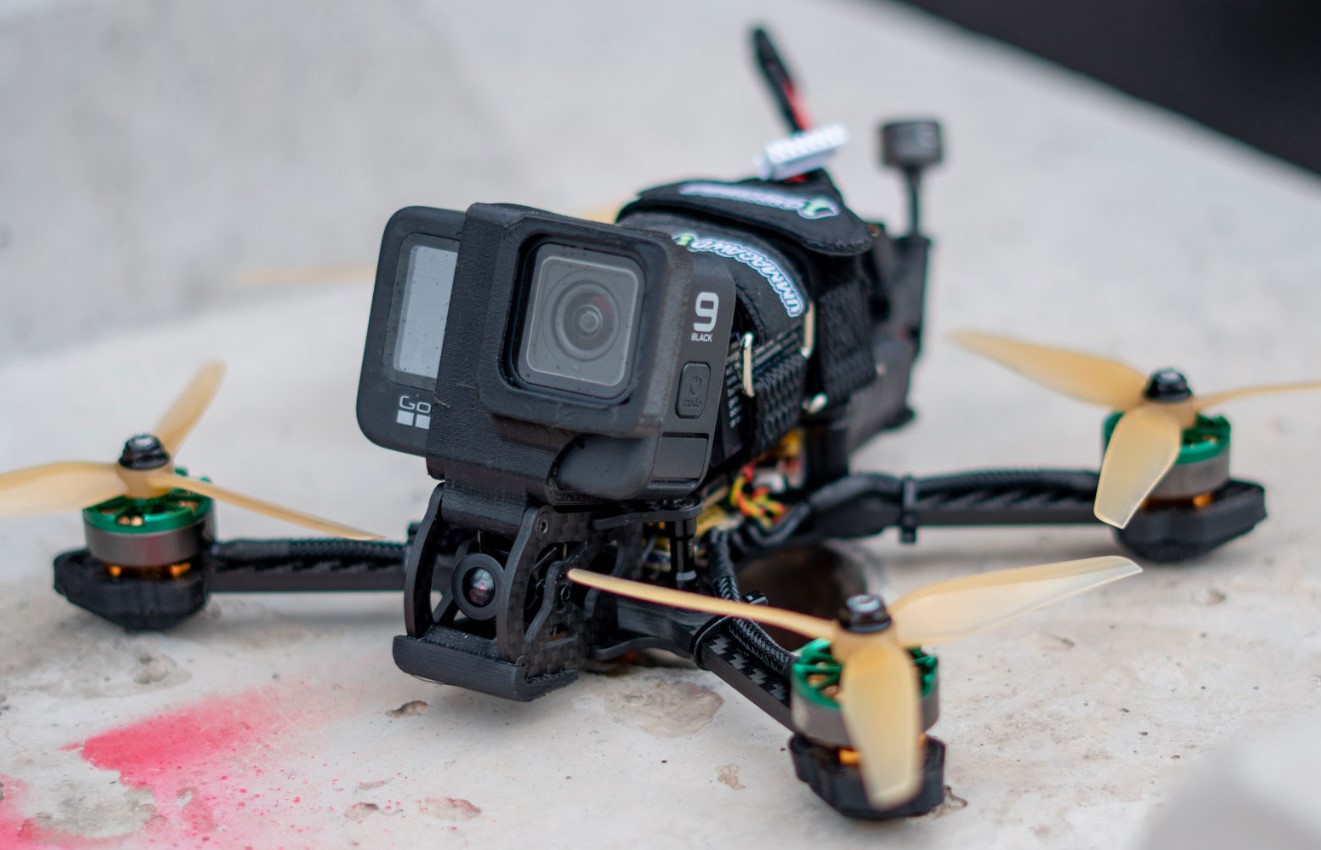The use of drones, or Unmanned Aircraft Systems (UAS), has exploded in recent years, finding applications in various fields from photography and agriculture to surveillance and delivery. One emerging application that has generated considerable interest and debate is the use of drones for tracking and recovering wounded deer during hunting season. This practice, often referred to as “drone deer recovery,” promises to increase the likelihood of recovering harvested game and minimizing the suffering of injured animals. However, the legality of this practice varies by state and is subject to a complex web of regulations. This essay will specifically address the crucial question: Is drone deer recovery legal in Maryland? We will delve into the relevant Maryland laws, explore the arguments for and against this practice, and provide a clear, up-to-date understanding of the current legal landscape. Follow Dronevoz.com !!!
Understanding the Maryland Law on Drone Use and Hunting
Maryland’s legal framework regarding drone use is primarily governed by the Maryland Department of Transportation (MDOT) State Highway Administration (SHA) and the Department of Natural Resources (DNR). While the MDOT SHA oversees drone operations from an aviation safety perspective, the DNR is responsible for managing wildlife resources and regulating hunting practices.
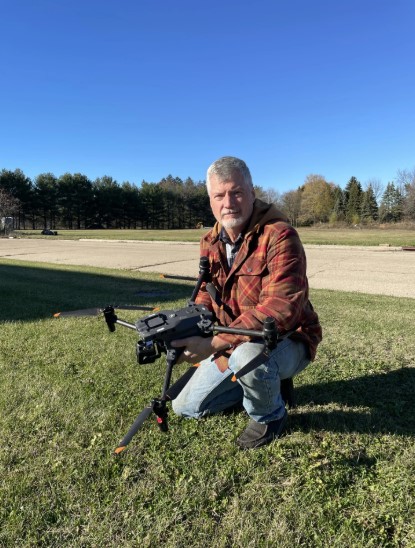
Is Drone Deer Recovery Legal in Maryland? Maryland’s Stance on Drones for Hunting
The DNR, through its regulations under the Code of Maryland Regulations (COMAR) and Natural Resources Article, explicitly prohibits the use of drones for hunting purposes. This prohibition extends to all stages of the hunting process, including scouting, locating, and recovering game.
Key Regulations and Legal Provisions
- COMAR 08.03.09.02: This regulation outlines general hunting provisions, stating that it is unlawful to “hunt, pursue, catch, kill, or attempt to hunt, pursue, catch, or kill any game birds or mammals with the aid of an aircraft, including a drone or other unmanned aircraft system.”
- Natural Resources Article §10-406: This section of the law further reinforces the prohibition, stating that a person may not “hunt or pursue wildlife with the aid of a drone or other unmanned aircraft system.”
- Natural Resources Article §10-613: This provision allows for a special permit to be issued for wildlife management. However, there are no records that prove this has been used for deer recovery.
- Definitions: In the context of these regulations, “hunt” is broadly defined to include any activity intended to capture, kill, or pursue game. “Aid” is interpreted to mean any assistance provided by a drone, including aerial surveillance and location tracking.
The Rationale Behind the Prohibition
The Maryland DNR’s decision to prohibit drone deer recovery, as well as any other drone use in hunting, is based on several key considerations:
- Fair Chase Ethics: A fundamental principle of ethical hunting is the concept of “fair chase,” which emphasizes giving the animal a reasonable chance of escape and minimizing the hunter’s advantage. The use of drones to locate wounded animals could be seen as undermining this principle, potentially giving hunters an unfair advantage and reducing the element of challenge inherent in traditional hunting methods.
- Potential for Harassment: There are concerns that the use of drones could lead to the harassment of wildlife, even unintentionally. The noise and presence of a drone could cause stress and alter the natural behavior of animals, potentially impacting their survival and well-being.
- Enforcement Challenges: Monitoring and enforcing drone use in remote hunting areas present significant logistical challenges for law enforcement agencies. It can be difficult to detect and apprehend individuals who are illegally using drones for hunting purposes, particularly in vast and densely wooded areas.
- Privacy Concerns: The use of drones raises potential privacy concerns, as these devices could be used to inadvertently or intentionally record images of private property or individuals without their knowledge or consent.
- Safety: Drone use brings inherent risks that could be dangerous to the person operating the drone, the people and animals near the drone, as well as wildlife in the sky.
>>> Read More: Is Drone Deer Recovery Legal in Louisiana?
Arguments for Drone Deer Recovery
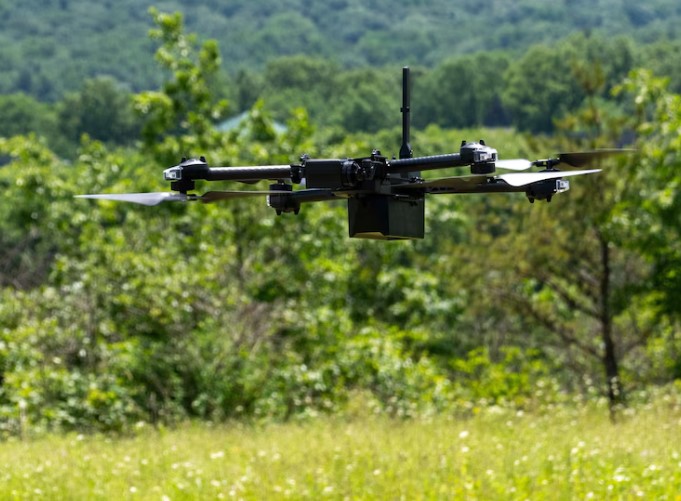
Despite the legal restrictions in Maryland, proponents of drone deer recovery argue that this technology can offer several potential benefits:
- Reduced Animal Suffering: A wounded deer that is not recovered can suffer for an extended period before succumbing to its injuries. Drones could potentially help locate these animals more quickly, allowing hunters to dispatch them humanely and minimize their suffering.
- Increased Recovery Rates: Hunters often lose track of wounded animals, especially in dense vegetation or challenging terrain. Drones equipped with thermal imaging cameras could be used to scan these areas more effectively, increasing the likelihood of recovering the game and reducing the waste of valuable resources.
- Improved Hunter Safety: Searching for wounded deer in difficult terrain can be physically demanding and potentially dangerous for hunters. Drones could reduce the need for extensive ground searches, minimizing the risk of accidents or injuries.
- Landowner Relations: Allowing for drone use to find lost animals could make it easier to ask for permission from other land owners.
The Future of Drone Deer Recovery in Maryland
While drone deer recovery is currently illegal in Maryland, the debate surrounding this practice is ongoing. As drone technology continues to advance and become more accessible, it is possible that the state legislature may revisit this issue in the future.
Factors that Could Influence Future Legislation:
- Technological Advancements: Further advancements in drone technology, such as improved thermal imaging capabilities and longer battery life, could strengthen the arguments for its use in deer recovery.
- Public Opinion: Public perception of drone use in hunting will likely play a significant role in shaping future legislation.
- Best Practices from Other States: Maryland lawmakers may look to other states that have permitted or regulated drone deer recovery to learn from their experiences and develop best practices. Currently, the majority of states do not allow for drone use in any aspect of hunting. Only about 25% of states allow for the use of drones in deer recovery.
- Advocacy Efforts: Hunters, conservation groups, and technology companies may advocate for or against changes to the current law, influencing the legislative process.
Conclusion
Drone deer recovery is currently illegal in Maryland. The state’s DNR regulations explicitly prohibit the use of drones for any hunting-related activity, including locating and recovering wounded deer. The rationale behind this prohibition is rooted in principles of fair chase ethics, concerns about wildlife harassment, enforcement challenges, and privacy considerations. While proponents of drone deer recovery highlight its potential benefits in reducing animal suffering and increasing recovery rates, the current legal framework prioritizes maintaining the traditional principles of hunting and ensuring the responsible management of wildlife resources. While the future of drone deer recovery in Maryland remains uncertain, any potential changes to the current law will likely be the result of careful consideration of technological advancements, public opinion, best practices from other states, and ongoing advocacy efforts. For now, hunters in Maryland must adhere to the existing regulations and rely on traditional tracking methods to recover their game. Using a dog for deer recovery is legal in Maryland, and this is the most common method used for locating wounded deer.
>>> Read: Is Drone Deer Recovery Legal in Kansas?
